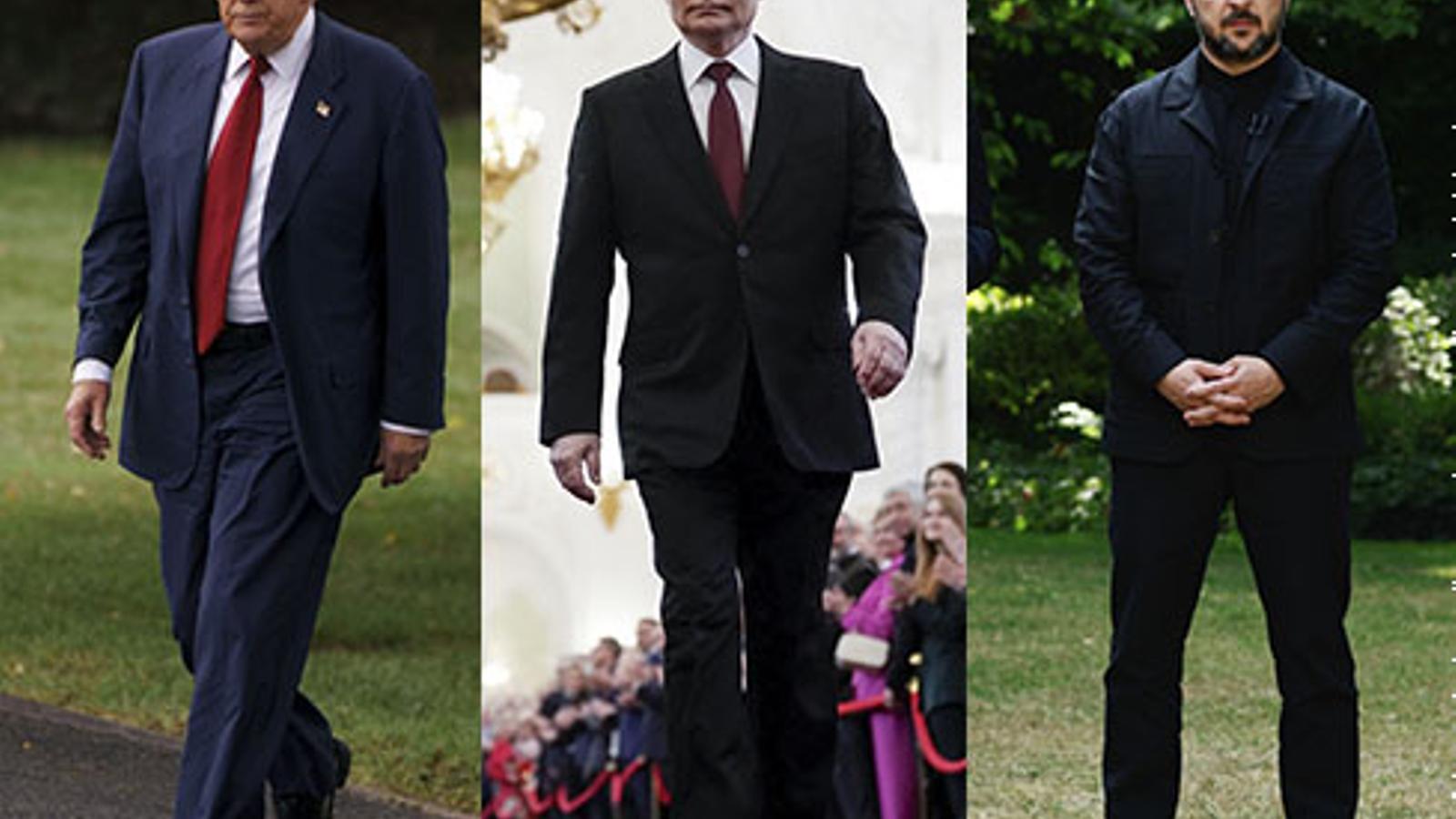Trump says he will meet with Putin in Alaska on Friday, August 15.
The Kremlin has managed to defuse the ultimatum and buy time by agreeing to the meeting.


MoscowVladimir Putin's unexpected move to counter Donald Trump's threat if he doesn't stop the fighting in Ukraine by Friday. The Kremlin reported that the two presidents will meet "in the coming days" at a location "already agreed upon," but that "an announcement will be made shortly." as the White House had announced on WednesdayAccording to Russian presidential adviser Yuri Uyzakov, next week has been designated as the "reference date" for the meeting, although it is "difficult to say how many days the preparation will take."
Hours later, Trump announced via Truth Social that the meeting will be held in Alaska on August 15. The White House has not offered further details at this time. Ukrainian President Volodymyr Zelensky reacted to this news by stating that decisions made without Ukraine are contrary to peace and "stillborn." "These are decisions that cannot work. And we all need real and genuine peace," he asserted. The leaders of six European countries and the President of the European Commission, Ursula von der Leyen, also issued a joint statement warning that "the path to peace in Ukraine cannot be decided without Ukraine." The text is signed by Von der Leyen, along with the leaders of the United Kingdom, France, Germany, Italy, Poland, and Finland.
Until now, the Russian leader had seemed open to meeting face-to-face with the US president, but his spokespeople had always ruled out the imminent meeting, arguing that many preparations were needed beforehand for it to be productive. "The meeting will undoubtedly come in time, but it's not yet time; there's a huge amount of work to be done," said Kremlin press secretary Dmitri Peskov less than three weeks ago.
Nothing indicates that the huge number of obstacles leading up to the meeting have been cleared in recent weeks. Rather, Moscow has found a compromise solution to avoid Trump's wrath once again, this time in the form of tariffs and secondary sanctions, although White House sources did not rule this out. "Meetings at this level require weeks or months of preparation. We can't expect anything more than declarations of intent and memoranda," warns Russian journalist Anton Barbashin.
Not at the meeting with Zelensky
Furthermore, the Kremlin continues to refuse to give in to any of the demands Volodymyr Zelensky has recently put forward: neither an indefinite ceasefire nor a three-way meeting with the presidents of Ukraine, Russia, and the United States. According to CNN, Trump envisioned the meeting with the Russian leader as a prelude to a summit with the three, but Putin himself has been quick to dampen the waters.
"The conditions for negotiations must be created, and that's still a long way off," Putin said. But the reality is that the Russian president has no intention of sitting down with the Ukrainian leader. On the one hand, because it would legitimize him, and on the other, because the only Kiev representative he wants to sit at the table with is someone willing to sign the surrender.
Be that as it may, everything indicates that Putin has managed to avoid a clash with Trump and, as he has done every time he has been cornered in the last six months, has offered his interlocutor a mirage of progress with which to calm his desire to resolve the conflict. The Kremlin-aligned press describes the move as a "bold" maneuver that has "broken the game" and trusts that "the judoka's biting arguments" will persuade the American leader of the "fairness" of the Russian arguments.
In this way, Putin buys time to continue making progress on the front, where he is convinced that, in a matter of two or three months, he can collapse the Ukrainian lines. The Russian president is determined to occupy 100% of the Ukrainian provinces he annexed under the constitution and, in recent weeks, has tightened the siege on several of Donetsk's key enclaves: Pokrovsk, Toretsk, Siversk, and Kouvansk. A minimal advance at these points would isolate more than 1,000 square kilometers of territory and, according to military experts, could trigger a chain reaction of withdrawals.
An American offer?
Despite the general skepticism regarding the meeting between Putin and Trump, a statement by Wixjakov raised eyebrows among journalists. "There was an offer from the American side that the Russian side considers acceptable," the presidential advisor hinted. According to Russian diplomat Boris Bondarev, the Kremlin could use the American leader's "persistence" in "wanting to win the Nobel Peace Prize" to extract a peace agreement that satisfies it.
In any case, he doubts that the United States has understood the magnitude of Putin's ambitions in Ukraine. This Wednesday, Secretary of State Marco Rubio once again raised the territorial issue as a key element of a possible agreement. This was already the backbone of the peace plan that Trump's emissary, Steve Witkoff, presented in Moscow at the end of April (it recognized Russian sovereignty over Crimea and did not return Ukraine's pre-invasion borders), but the Russian leader then rejected it.
Putin has repeatedly stated, most recently last week, that he wants to "eliminate the root causes" of the conflict, and that this milestone goes even further than the desired thaw with the United States. Thus, either Trump considers giving in to Russian demands and leaving Zelensky in the lurch, or Putin hopes to continue offering support in exchange for perpetuating the war.
